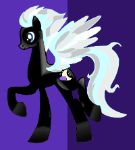general What makes a good story?
-
Similar Content
-
- 19 replies
- 386 views
-
general What is your temperament?
By Dreambiscuit,
- 19 replies
- 458 views
-
general In what way did mlp help your friendships?
By V3ng34nc3,
- 9 replies
- 382 views
-
- 11 replies
- 2,298 views
-
- 18 replies
- 3,794 views
-
-
Recently Browsing 0 members
- No registered users viewing this page.





Recommended Posts
Create an account or sign in to comment
You need to be a member in order to leave a comment
Create an account
Sign up for a new account in our community. It's easy!
Join the herd!Sign in
Already have an account? Sign in here.
Sign In Now